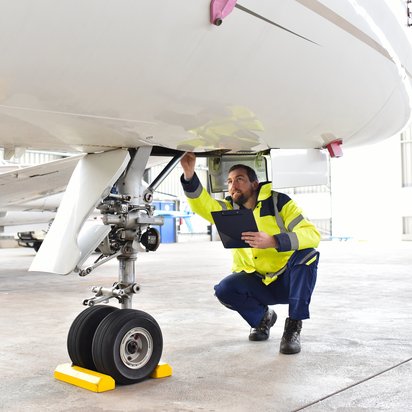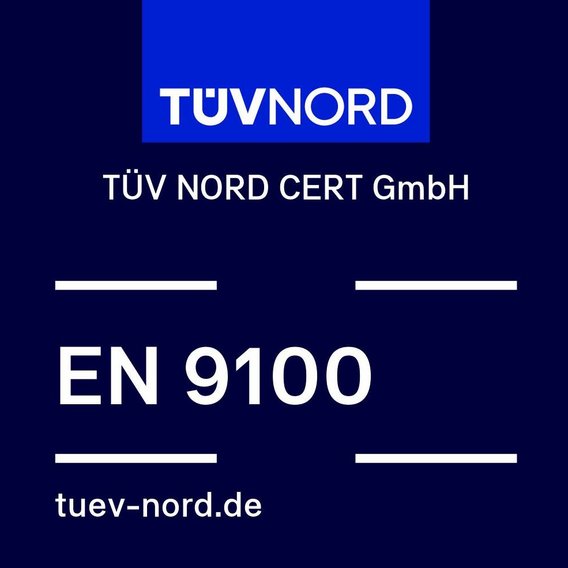Aerospace: Certification according to the EN 9100 series



Safety and quality are fundamental requirementsin the aerospace industry, as even small errors can have serious consequences.
Certification to a 9100 series standard is a necessary prerequisite for approval as a supplier in the industry.
Aircraft manufacturers and their first-tier suppliers (first-tier direct suppliers) require corresponding certification. This fulfils all national and international quality and safety requirements of the industry and actively increases the reliability and quality of every certified company for the benefit of their customers worldwide.
To ensure that this remains the case, the industry is constantly changing, developing and improving its safety measures and procedures.
The target group includes all companies in the aerospace industry supply chain - from individual parts suppliers and engineering companies to engine, component and finished product manufacturers. For suppliers of most well-known manufacturers of finished components or products (original equipment manufacturers, OEMs for short), certification is required when initiating and maintaining business relationships.
The EN series of standards will be replaced by the IA series of standards, i.e. in future the standards will be called IA 9104-1, IA 9101 and IA 9100, IA 9110, IA 9120.
Most recently, two important standards in the EN 9100 family were revised: IA 9104-1 and IA 9101 - with effects on EN 9100, 9110 and 9120.
Both standards together regulate the planning, implementation and documentation of audits in the EN 9100 series.
And here's what's next for you:
The revised IA 9104-1 is expected to be published in 2025. We will carry out the transition in a special audit, which we can perform together with your next regular audit. All OASIS database administrators will be informed of the database changeover by the standard owner via OASIS. As certified organisations generally only have to read the database or, at best, provide data for NCR processing, no significant additional work is expected here.
Accreditation by the DAkkS (Deutsche Akkreditierungsstelle GmbH) is not expected before the beginning of 2026. You can therefore wait and see, as the new method cannot be applied before then.
The first audits in accordance with the new regulations will not take place before 2026. Please note: The changeover is mandatory!
The 9100 family stands for a comprehensive quality management system for manufacturers and suppliers in the aerospace industry. It is based on the well-known standard ISO 9001 with the addition of aerospace-specific requirements, for example in relation to operational risk management or document and verification management. In this way, companies certify themselves to a standard from the 9100 family and ISO 9001 at the same time.
Based on the DIN EN ISO 9001 standard, there are three standards for the certification of the relevant company services:
1) EN 9100 for design, development, production, assembly and maintenance
2) EN 9110 for maintenance and repair
3) EN 9120 for dealers and stockists
In addition to the basic requirements for a quality management system, the standard requirements of the 9100 family focus on the following areas:
In principle, all companies in the aerospace industry supply chain - from individual parts suppliers and engineering companies to engine, component and finished product manufacturers. For suppliers of most well-known manufacturers of finished components or products (original equipment manufacturers, OEMs for short), certification is required when initiating and maintaining business relationships: Certification is mandatory in order to register as a supplier in the international database "Online Aerospace Supplier Information System" (OASIS database) of the International Aerospace Quality Group (IAQG).